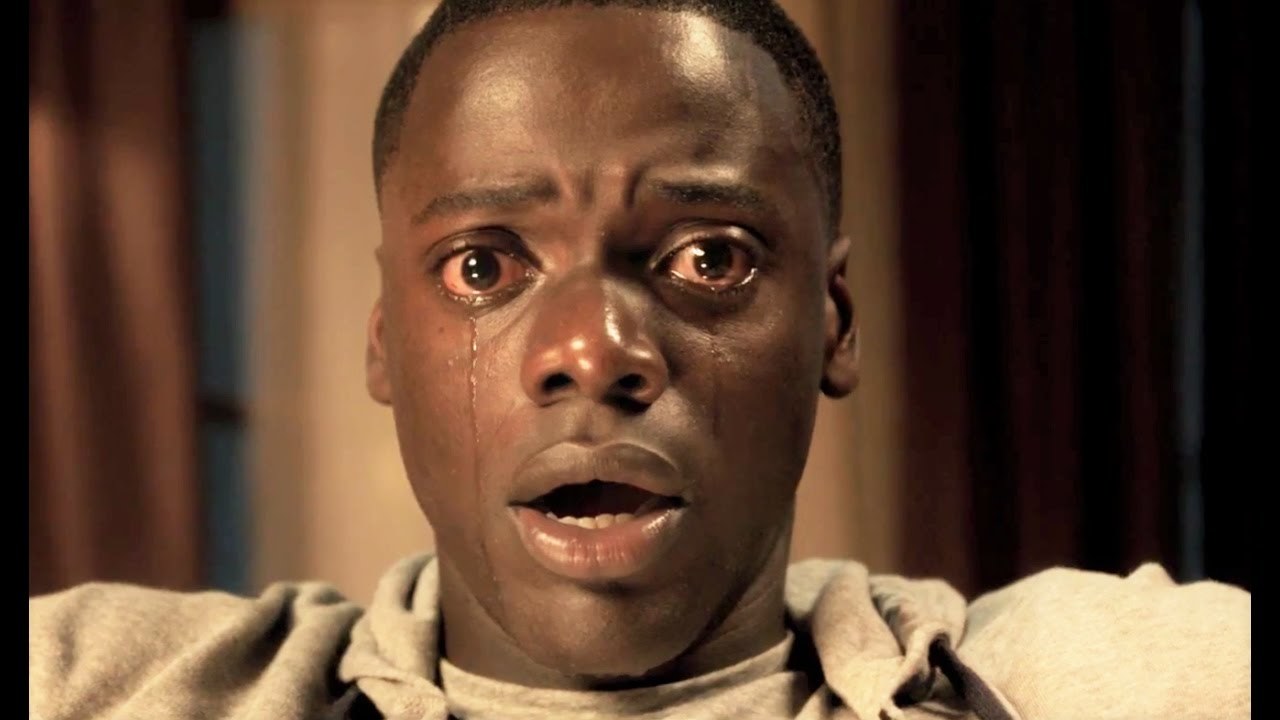Daniel Kaluuya is on a roll.
When we meet the breakout star of Get Out, a terrifying satire on white American racism, he’s on a break from filming his next movie. That’s Marvel’s Black Panther, which has Very Big Deal written all over it.
“It’s a really crazy, mind blowing experience,” the 27-year-old Londoner says. “Because it’s an African blockbuster and an African story. I hadn’t seen that before and it’s really exciting to be part of.”
Being on set means Kaluuya, already a familiar face in the UK due to stints in Skins and Black Mirror, can’t fully engage with his current film Get Out’s reception. A U.S. box office success, the horror from the Blumhouse stable (The Gift, Insidious) scored a hard-to-come-by 99 per cent on Rotten Tomatoes with a subject matter that became a think-piece hot topic.
In the film, Kaluuya plays Christopher, a black guy who visits his white girlfriend’s family for the first time. It could easily have been a comedy — that being the writer director’s forte as one half of Key & Peele — but the jokes slowly bleed away and Get Out becomes a brilliant, savage dissection of white America’s historical, ongoing theft of black bodies for its own privilege.
Kaluuya is brilliant in it; his performance dialed down in a way that demonstrates the insidious, everyday nature of racism and the toll that takes. But not everyone has been so effusive about his involvement in the film. Last week Samuel L. Jackson questioned the casting of a British actor in the role, instead of “an American brother” — suggesting that being “cheaper than us” helped Brits land US roles.
Are you aware of the reception to Get Out?
Yes and no. It’s a bit weird. Everyone’s vibe on the set of Black Panther is quite cool, but people are beginning to watch it. I’m in a bubble. My phone’s got hot. But my actual world is the same. A lot of people I respect love the film so that’s all I can really ask for.
Anyone in particular?
Somebody sent me a screengrab of Nas, who’d posted the poster. That blew my fucking mind. Holy fucking shit Nas! That’s crazy to me.
What do you have to say about Samuel L. Jackson’s comments?
Listen, Samuel L. Jackson is someone who’s helped me out in my career genuinely. He’s helped me out off-screen and on-screen. He’s a legend, he’s killed it for decades. I have nothing but respect for him. The only thing I can say is that he hasn’t watched the film. It’s like people have taken it for what they want to talk about. I’m just living my life. I find really uncomfortable to have the word ‘black’ and ‘cheaper’ in the same sentence, from anyone in the universe. We ain’t cheap, do you know what I mean?
People are dying because of that. Away from acting, because acting is acting, in the real world black people are being devalued. Black and cheap shouldn’t be in the same sentence. No black man is cheap, no black woman is cheap, no black person is cheap. We’re priceless. But big up Sam. He’s broken the doors for us. Denzel Washington’s broken doors, Jamie Foxx’s broken doors; which is why I can even have the thoughts I’m having because of what they’ve done.
You handle the way in which racism works, and how it gets internalized, incredibly well on screen. What were you thinking about in the role?
Race is always portrayed in an extreme sense in the media. Like someone famous has called someone else famous a racial slur. Or someone has been shot by the police. But they are symptoms of a disease. If you see me and just see my color or see that I’m British, that’s a symptom because you’re not seeing that person. For me, that really resonated in the script. This sense of other. That’s everyday racism. That’s like me going into Tesco and getting followed by a security guard, a black security guard. What’s that? You think I want to rob some prawn cocktail crisps? Do I really want to rob that shit? That’s why I don’t go to those luxury stores because they treat you like you’re nothing. It’s everyday you’re feeling that. I can’t even go shopping for food without being reminded that I’m black and what that means in the public consciousness. You can’t attack every single instance because you’d be tired. I got shit to do man. So you internalize it.
Why did the film need to be a horror?
Because racism is horrifying. It’s a demon and people are dying because of it. There ain’t no monsters in this film, there ain’t no ghouls. There’s just that shit. It creates a paranoia. People end up in prison because of their skin color. You can be caged up because of your skin. You get stopped by police and you can’t even say shit because if you do you’re seen as aggressive. You see yourself as a coward but you know it’s for the greater good. There’s a lot of self-hate in that.
Without spoiling too much, can you tell us about why the alternate ending didn’t end up on screen?
We shot that. They tested that and it didn’t work. So much happened in the time between it being written, being shot, and being released. From Black Lives Matter to Obama still being president; people thought racism was solved. Jordan was trying to say, no I don’t think so. It’s so out in the open about what’s happening, that ending would have been too much for people. That ending allows audience to interpret. That other ending is real but there’s some hope in the current ending, and hope is needed right now.
Credits
Text Colin Crummy
